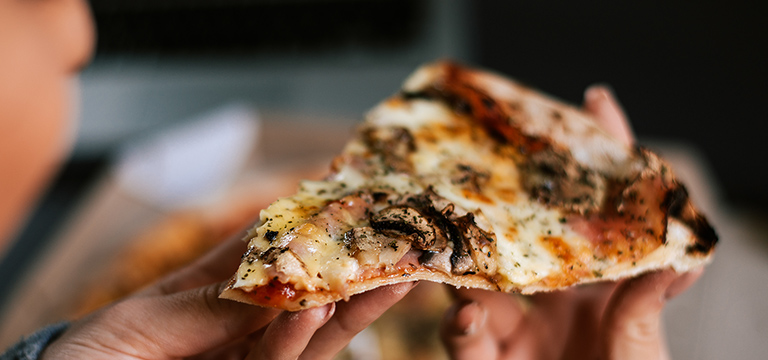The Science Behind “Cheat Days”

When it comes to healthy eating, choosing the right diet and lifestyle for you is important. So is keeping up a regimen that keeps you on track. But do cheat days really derail that regimen? Or are they essential for keeping it in place? We dive into the science behind cheat days below to help you stick to your healthy habits.
What exactly is a cheat day or cheat meal?
It’s either a single meal or entire day that veers from your planned diet pattern. The strategy behind this is that by allowing yourself brief periods of indulgence you’re less likely to veer off course of your diet with regularity. The foods you eat on a cheat day vary from person to person depending on your individual preferences and goals. But typically they include high-calorie foods not otherwise permitted on a healthy eating plan.
Do cheaters actually win?
Weight loss and body composition changes are complex and look different on everyone. Overall the rule of thumb is to eat fewer calories than you burn for effective weight loss. One of the common weight management theories is that employing cheat meals will lead to changes in improved metabolic function due to fluctuations in the hunger hormone leptin.
Leptin is a hormone responsible for suppressing feelings of hunger. It’s still unclear how fluctuations in leptin levels associated with weight changes affect someone’s ability to control their eating behaviors and maintain weight loss. More research is needed, but at this stage it’s likely that weight loss occurs with the cheat method because of a reduction in overall calorie intake rather than hormonal change.
Can planned indulgences act as motivators?
Another component of the cheat day strategy is a theory that by allowing yourself food indulgences on a planned schedule helps motivate you to stick to your healthy diet more regularly. This is where weight loss psychology comes in. Some people can effectively stick to their diet knowing that their cheat day is coming up, but not everyone can regulate their own eating behaviors in the same way. It’s important to remember that a healthy lifestyle looks different for everyone and that even cheat meals or days should be appropriately planned in advance.
The cheat strategy is adaptable and can be implemented alongside many different diet patterns. The reward-based cheat meal or cheat day strategy may be effective if you’re able to execute a well-planned diet and maintain overall reduced calorie intake.
Are cheat days free-for-alls?
No. If a pre-planned cheat day or meal works for you as a motivator to stick to your healthy diet the rest of the time that’s great. But your cheat day should not be treated as freedom to excessively overeat. The most effective weight loss strategy is one that you can stick to. If you can keep from overdoing it on those days and reduce your overall caloric intake on others, you’re more likely to see effective weight loss or maintenance.
Talk to your doctor before starting any diet plan so you can determine what’s right for you. And if you’re interested in developing healthier habits, our Online Health Coach can help you to start setting goals and living a healthier lifestyle.


